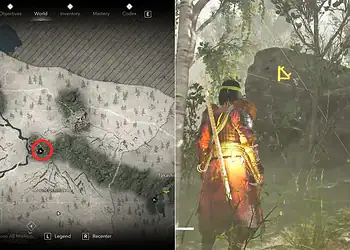President Donald Trump declared on November 28 that his administration will “permanently pause migration from all Third World Countries to allow the U.S. system to fully recover,” intensifying his immigration crackdown following a deadly shooting near the White House that claimed the life of National Guard member Sarah Beckstrom.
Table of Contents
Trump Key Policy Announcements Overview
| Policy Action | Details | Implementation |
|---|---|---|
| Migration Pause | Halt from “third world countries” | Timeline unclear |
| Green Card Review | All holders from 19 “countries of concern” | Immediate |
| Afghan Immigration | Complete suspension of requests | Effective immediately |
| Federal Benefits | End subsidies to non-citizens | To be determined |
| Asylum Cases | Review all Biden-era approvals | In progress |
The Catalyst: Washington DC Shooting
Two National Guard members were shot Wednesday near the White House, with specialist Sarah Beckstrom, 20, dying from her injuries Thursday while Air Force Staff Sergeant Andrew Wolfe, 24, remains in critical condition. The suspect is a 29-year-old Afghan national who worked with the CIA during the Afghanistan War and emigrated through a program for those who assisted American troops.
The incident became a political flashpoint, triggering immediate immigration policy changes within 24 hours.
Immediate Administrative Actions
USCIS Director Joseph Edlow announced multiple reviews:
- Full-scale reexamination of every Green Card from countries “of concern”
- Immediate indefinite suspension of all immigration requests involving Afghan nationals
- Review of all asylum cases approved under the Biden administration
The 19 “countries of concern” referenced in June travel restrictions include Afghanistan, Burundi, Laos, Togo, Venezuela, Sierra Leone, and Turkmenistan, though the administration hasn’t specified which countries fall under the “third world” designation.
Trump’s Controversial Claims Meet Research Reality
In his late-night Truth Social post, Trump claimed “most” foreign-born U.S. residents “are on welfare, from failed nations, or from prisons, mental institutions, gangs, or drug cartels” as justification for the sweeping changes.
However, academic research contradicts these assertions:
- A 2024 review in the Annual Review of Criminology found “high concentrations of immigrants are not associated with increased levels of crime and delinquency across neighborhoods and cities in the United States”
- A 2023 economics study revealed immigrants are 60% less likely to be incarcerated than U.S.-born citizens
Legal and Implementation Challenges Ahead
It remains unclear how Trump would enact such a migration “pause,” with previous bans facing challenges in courts and Congress. A travel ban issued during Trump’s first term in 2017 was widely criticized and faced legal resistance, undergoing retooling after protracted courtroom fights before being rescinded by President Biden in 2021.
Constitutional and legal experts anticipate similar challenges to these new measures, particularly regarding:
- Definition of “third world countries”
- Authority to revoke existing green cards
- Due process rights for current residents
- International treaty obligations
Historical Context: National Guard Deployment
National Guard troops have been positioned across Washington, DC, since August when the Trump administration declared a “crime emergency.” Following the shooting, Trump announced 500 additional troops would deploy to the capital.
A federal judge recently ordered the National Guard deployment to end but put the order on hold for 21 days to allow the administration time to either remove troops or appeal.

Global Immigration Policy Landscape
This announcement continues Trump’s aggressive second-term immigration agenda. For context on how immigration policies affect global mobility and international relations, TechnoSports provides comprehensive coverage of how policy changes impact various sectors including technology, business, and international collaboration.
The gaming and esports industries, which rely heavily on international talent and competitions, may face significant impacts from restrictive immigration policies—a topic covered extensively in TechnoSports’ gaming section.
Official Resources and Updates
For authoritative information on U.S. immigration policy:
- U.S. Citizenship and Immigration Services (USCIS)
- Department of Homeland Security
- White House Official Statements
What Happens Next?
The administration faces several critical tasks:

- Defining scope: Clarifying which countries fall under the designation
- Legal framework: Establishing constitutional authority for the pause
- Implementation timeline: Determining when policies take effect
- Existing residents: Processing reviews of current visa and green card holders
With strong bipartisan reactions expected and legal challenges likely, the coming weeks will determine whether these sweeping immigration changes can withstand judicial scrutiny.
Frequently Asked Questions
What Exactly Qualifies as a “Third World Country” in Trump’s Policy?
The Trump administration has not provided a clear definition of which countries fall under the “third world” designation in this policy announcement. Historically, “third world” was a Cold War-era term referring to nations not aligned with NATO or the Communist bloc, but it’s now informally used to describe developing nations. The USCIS has referenced 19 “countries of concern” from a June 2025 travel ban including Afghanistan, Burundi, Laos, Venezuela, Sierra Leone, Togo, and Turkmenistan, but officials haven’t confirmed if these constitute the full list for the migration pause. This ambiguity creates significant uncertainty for immigrants, visa applicants, and green card holders from potentially affected nations who currently lack clarity on their status or future eligibility.
Can the President Legally Revoke Existing Green Cards and Citizenship?
Revoking existing green cards and citizenship faces significant constitutional and legal hurdles. While presidents have broad authority over immigration policy under laws like the Immigration and Nationality Act, green card holders possess legal permanent resident status with due process protections under the Fifth Amendment. Courts have historically ruled that removing this status requires individual proceedings proving fraud, criminal activity, or national security threats—not blanket policy changes. Citizenship revocation is even more restricted, typically requiring proof the citizenship was obtained through material misrepresentation or fraud. Trump’s similar travel ban attempts during his first term faced multiple legal challenges and required significant modifications. Legal experts anticipate immediate court challenges if the administration attempts mass green card revocations, making implementation timeline and scope highly uncertain despite the announced intentions.








